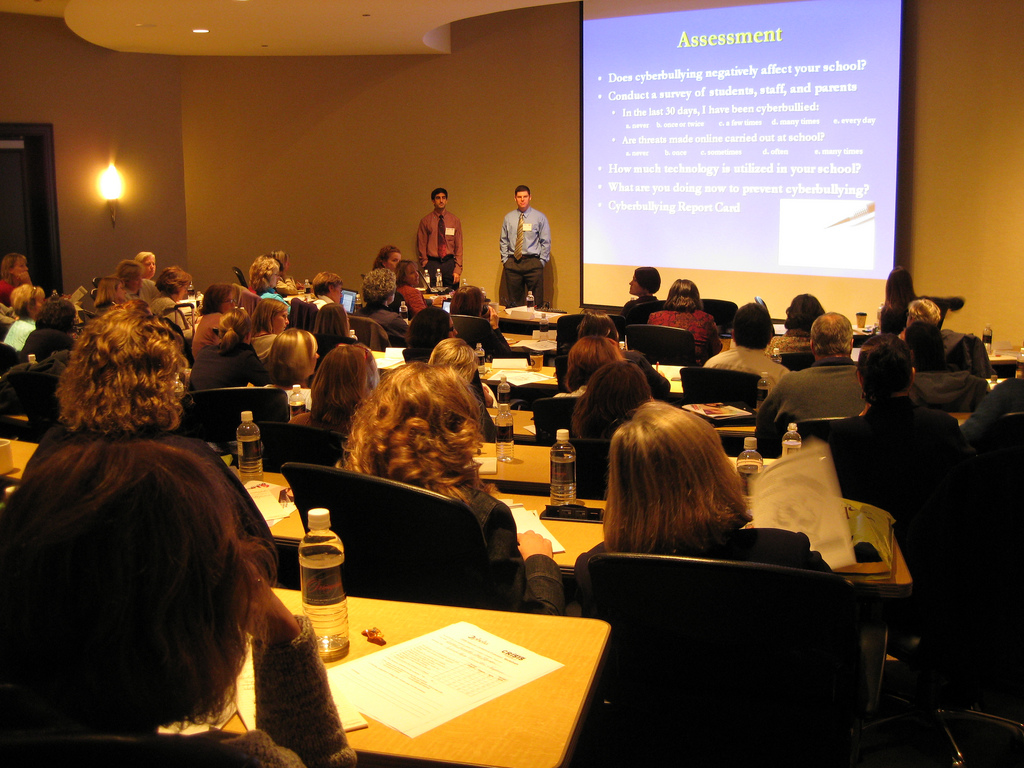
NOTE: Since April 2020, we have been offering every one of our presentations and trainings in virtual modalities (e.g., Zoom, WebEx, Teams, Hopin, Skype). Reach out if you need specifics, as we’ve optimized the way we engage with our audiences from afar!
This presentation is designed for school professionals and other youth workers who desire a comprehensive understanding of (and action plan to deal with) cyberbullying, sexting, and unwise social media use. Apart from providing foundational information about trends and patterns, it will cover relevant legal principles and provide clarity from the courts as to when to intervene in incidents that originate off-campus. In addition, it will share recommendations for formal policy implementation and enforcement, as well as informal responses for all involved. With regard to prevention, we emphasize the importance of developing kids with moral compasses, compassionate hearts, and resilient mindsets to bravely face social adversity and overcome it. In addition, a consistent theme throughout will be that it takes a coordinated effort to shape and enhance the existing social and relational climate within to improve attitudes and behaviors across the school. Towards this end, we encourage educators to marshal the powers of peer influence and school culture to curtail peer conflict, harassment, and other problem behaviors. Primarily, we will discuss the very best practices in school climate initiatives such as social norming, youth grassroots campaigns, peer mentoring, data-driven action plans, and multi-pronged policy and programming approaches by adults. The overall goal is to enlighten educators about the tremendous value inherent in a positive school climate, not only to enhance student achievement, success, productivity, and connectedness, but because it will produce students who are safe, smart, honest, and responsible both offline and online.
This training will teach participants to:
• Identify popular online environments among adolescents today
• Understand youth brain development and how it affects online decisions
• Obtain a baseline for what the research says as to the prevalence, scope, and frequency of cyberbullying and sexting
• Understand social media use as a phenomenon, both psychologically and as it plays out among youth
• Identify how adolescents are misusing social media and how it can affect their future
• Teach youth how to use and enjoy social media responsibly
• Realize the possible dangers with social media “friending” and “following” between adults and the teens under their supervision
• Understand the role of educators and other youth professionals in responding to cyberbullying
• Understand how non-technological and technological cases have created legal precedent on when and how to intervene and discipline
• Identify the best ways to structure formal policy
• Realize the importance of creative responses
• Recognize how the best ways adolescents can respond when they or others are harmed
• Learn about civil and criminal actions that can be pursued
• Discover ways schools and other organizations can formally assess the problem and implement programming to reduce its prevalence
• Comprehend the value of peer-led initiatives
• Realize how moral development, empathy, and resilience can be built to reduce offending and victimization
• Understand how anonymous reporting systems can help students keep you in the loop without fear of retribution
• Realize when and how to informally and formally monitor electronic communications
• Learn how other community members can contribute to your goals
• Understand what teens themselves can do to safeguard their Internet experiences
• Understand the critical importance of creating and maintaining a positive school climate to prevent misbehaviors
(6 classroom hours)
Here are numerous testimonials from schools and other organizations with whom we have worked.
Contact us today to discuss how we can work together!








How do I access this training. It's not clear to me.
Hi Pamela,
Organizations work with us to provide these trainings all across the country. You can check our "events" page (https://cyberbullying.org/events) to see if there is one near you, or contact us if you would like information on how to bring one to your community. Thanks!